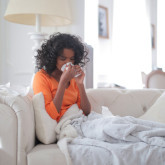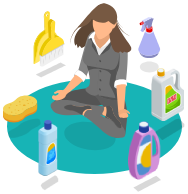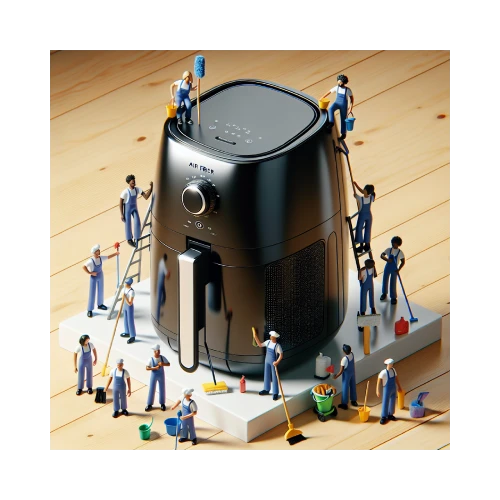
How to Avoid Getting a Cold This Winter
It’s that time of year when illnesses like colds and the flu are rife. If you work in an office, there’s probably someone not that far from you with a runny nose. Sometimes it seems like it’s impossible to avoid the inevitable winter colds… but there are some easy steps you can take to reduce your chances of getting sick this winter.
Wash your hands regularly
This may seem obvious, but you’d be surprised how many of us are getting this wrong. Some studies have shown that as few as 32% of men and 64% of women wash their hands after using the bathroom! Proper hand hygiene is one of the most effective ways of stopping the spread of germs and illnesses – it alone can result in a 20 percent reduction in respiratory illnesses such and colds and the flu.
Make sure you wash your hands:
- After using the toilet
- Before handling food
- Before and after eating food
- After blowing your nose, sneezing or coughing
- After touching animals
- After treating a cut or wound / clearing up bodily fluids
How to wash hands properly
Even if you are washing your hands regularly, recent studies suggest that unfortunately you’re probably not doing it right. The NHS recommends washing your hands for around 20 seconds – or the time it takes to sing ‘Happy Birthday’ twice. If you’re going to try this technique in the office we’d recommend singing along in your head!
- Wet your hands thoroughly with clean water
- Apply soap and rub your hands together
- Clean the back of your hands and in between fingers
- Clean in between fingers with palms facing each other
- Rub the back of your fingers against your palms
- Rub your thumbs using the opposite hand
- Rub the tips of your fingers on the palm of your opposite hand
- Finally, rinse your hands with water and then dry completely with a disposable towel. Use the paper towel to turn off the tap.
GOJO Mild Foam Hand Soap can be used frequently without causing irritation.
GOJO Antimicrobial Foaming Handwash provides protection against a wide range of bacteria and viruses.
Hand sanitisers
If soap and water isn’t available, say when you’re out and about, you can use an alcohol-based hand sanitiser instead. Get into the habit of carrying a hand sanitiser around with you and you can quickly beat germs whenever you need to. A hand sanitiser should be at least 60% alcohol to kill germs so check the levels when you buy. It’s worth noting that a hand gel will not clean dirty, stained hands so soap and water is the preferred option when you can get to a sink.
Purell hand sanitisers contain 70% alcohol to kill 99.9% of bacteria.
Coughs and sneezes
These seem like an everyday part of life throughout the winter. Even if you don’t contract full-blown flu, you’ll probably have days where you’ll cough and sneeze if you’ve picked up a minor bug. Stop the spread of bugs like these and avoid them turning into more serious illnesses by making sure you cover your mouth when coughing and sneezing. You can either use a tissue or, if you don’t have one to hand, sneeze into your hands then wash them or sneeze into your elbow.
If you are feeling unwell, stay at home if possible and make sure you maintain a sensible distance from other people. When you cough and sneeze, particles can travel as far as 6 feet, being inhaled from the air or settling on surfaces ready to be picked up by other people’s hands. Just because you can’t see the germs doesn’t mean they’re not there!
Avoid touching your mouth, nose and eyes during the day. This often happens subconsciously, and we can often touch our faces 15 times per day without realising. This can easily accelerate the spread of germs, especially if you’ve been exposed to someone who is ill recently.
Stop the spread of germs throughout your home or office
Germs and viruses can live on surfaces, and the length of time they can survive depends on many factors, but it can be hours or months. Disinfecting surfaces in your home and office regularly, for example your office desk, your keyboard and mouse, the kitchen and bathroom surfaces, and door handles can stop the spread of flu, cold and sickness bugs.
Try a food-safe sanitiser like Compass Pro Wipe Out, or for bathrooms, Evans Final Touch provides powerful sanitising.
Regularly sanitise the cloths you use around the home. You might be shocked to hear that around 90% of dishcloths harbour high levels of bacteria. Put your cloths in a hot wash (over 60°C) regularly and consider sanitising them for extra protection from nasty germs.
Pop your cloths in the sink overnight with a chlorine sanitising tablet.
Sources:
https://www.nhs.uk/live-well/healthy-body/best-way-to-wash-your-hands/
https://www.livescience.com/37326-bathroom-hand-washing-habits.html
https://www.bbc.co.uk/news/magazine-19834975
https://www.dailymail.co.uk/health/article-2680928/Which-household-item-dirtier-toilet-60-DISHCLOTHS-harbour-life-threatening-bacteria-UKs-filthiest-world.html
Stay Connected
Want to hear more from The Cleaning Collective? Sign up to our mailing list for the latest offers and news
The Cleaning BlogWant to learn more about cleaning? From the latest cleaning and hygiene news to handy how-to guides, why not check out our most popular blog categories. |













